From December 18 to December 22, 2023, at Vietnam National University of Agriculture (VNUA), the "Special Lecture Program" co-organized by Handong Global University (HGU), Korea, and VNUA, took place.
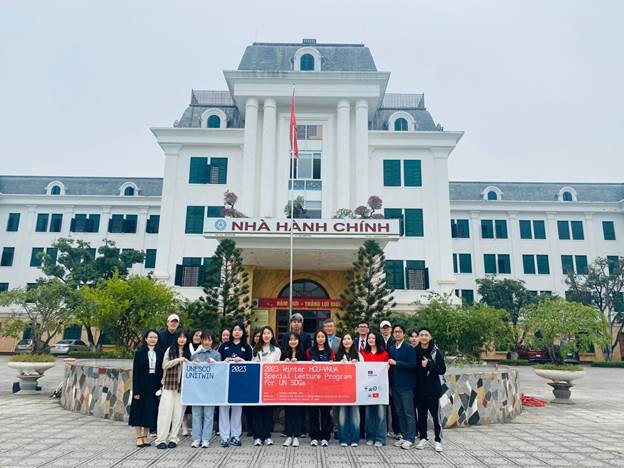
HGU and VNUA delegations take a photo at VNUA
The HGU delegation attending the program included Prof. Dr. Jinwon Ahn, Lecturer of the Faculty of Economics and Management, Director of the Institute for International Development Cooperation, professors of the Faculty of Economics and Management, and 10 students. From VNUA, there was Assoc. Prof. Dr. Nguyen Anh Tru, Vice Dean of the Faculty of Accounting and Business Management, Dr. Nguyen Thi Thu Quynh, Dr. Nguyen Thu Thuy, and 10 students from the Faculty of Accounting and Business Management, Faculty of Economics and Rural Development, and Faculty of Natural Resources and Environment.
The purpose of the program was to enhance opportunities for cooperation in teaching and scientific research between students of the two universities through conducting interdisciplinary research on economics, society and the environment, contributing to achieving the United Nations’ goal of sustainable development. The program consisted of a series of activities, including: (1) Special lectures by HGU and VNUA professors for students; (2) 20 students were divided into 05 groups to conduct research under the guidance of professors from HGU and VNUA; (3) Evaluating the research results of student groups; and (4) Summarizing and awarding program certificates to students.
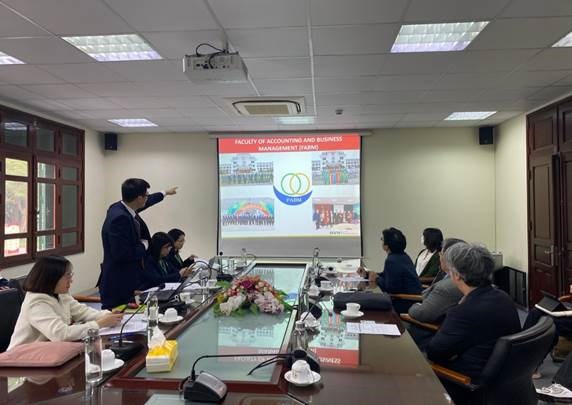
Assoc. Prof. Dr. Nguyen Anh Tru and VNUA lecturers welcomed the HGU delegation.
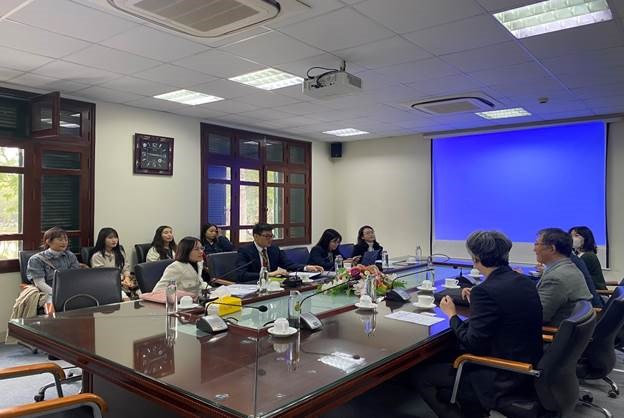
Delegates discuss opportunities for cooperation between the two universities
Six special lectures were presented by HGU and VNUA professors in the program, including: (1) Sustainability and ESG; (2) Technical innovations and sustainable development in housing markets; (3) The cultural impact on establishing potential entrepreneurship: A comparative study on cases of university students in Cambodia, Mongolia, Nepal, Peru and Rwanda; (4) Climate change mitigation and REDD+; (5) Foreign direct investment in Vietnam; and (6) Economic growth.
The research of 05 student groups included: (1) Comparison of the New Village (Saemaul) movement in Korea and new rural development in Tuyen Quang province and directions for improvement; (2) Integrated strategies for real income development in wet rice agriculture in Vietnam; (3) Integrated strategies for real income development in wet rice agriculture in Vietnam; (4) Solutions for educational inequality by region: Case study in Da Bac district; and (5) Recommendations for air pollution in Hanoi: Encouraging the use of green transportation.
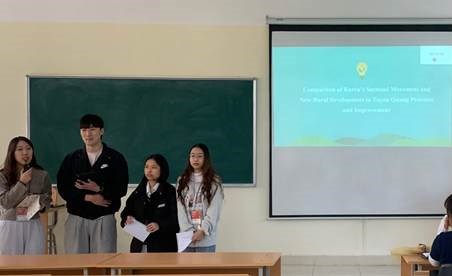
The group of students presents their research on "Comparing the New Village (Saemaul) movement in Korea and new rural development in Tuyen Quang province and directions for improvement"
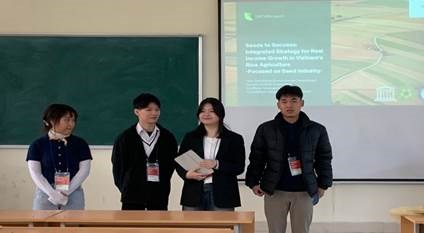
The group of students presents their research on "Integrated strategies for real income development in wet rice agriculture in Vietnam"
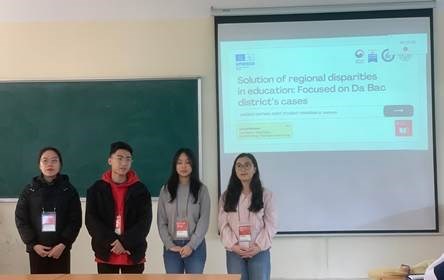
The group of students presents their research on "Solutions for regional educational inequality: Case study in Da Bac district"
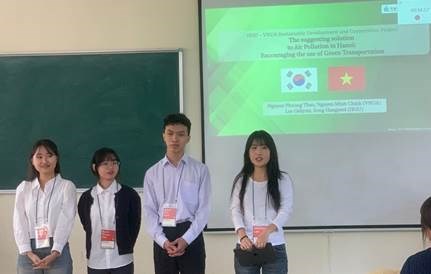
The group of students presents their research on "Recommendations for air pollution in Hanoi: Encouraging the use of green transportation" - This was also the student group that won the first prize of the program.
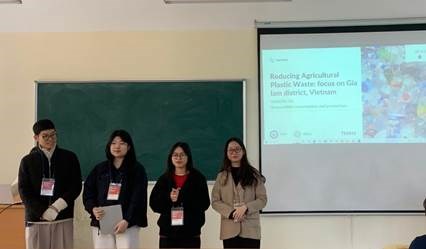
The group of students presents their research on "Reducing plastic waste: Research in Gia Lam district"
The results of the presentations show that all student groups grasped basic research knowledge and methods and were able to apply them to interdisciplinary research. Students had fairly good English skills and were relatively confident when giving presentations. After all the groups finished their presentations, students received comments from the lecturers in the Board of Examiners to complete the reports and continue implementing new research in the future. At the end of the program, representatives of HGU and VNUA summarized and awarded certificates and gifts to participating student groups.
\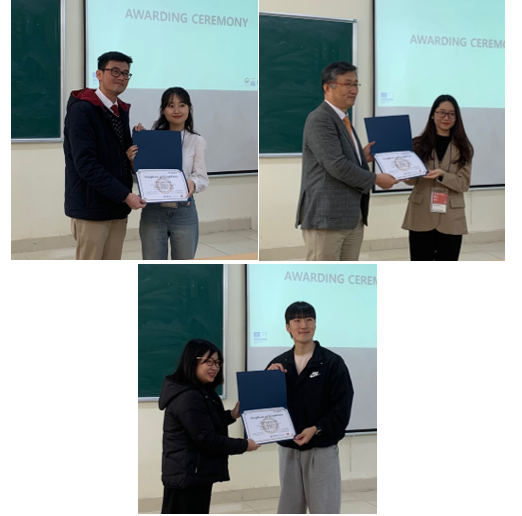
Representatives of HGU and VNUA awarded certificates to students participating in the program
After nearly three months of implementation, it could be said that the special curriculum had been a great success. The program contributed to concretizing teaching and scientific research cooperation activities between HGU and VNUA. At the same time, the program also improved teaching and scientific research capacity of lecturers and students of the two universities. In particular, students participating in the program had the opportunity to exchange and learn with foreign students, thereby opening up further opportunities for cooperation. Hopefully, HGU and VNUA would have a wide range of cooperative teaching and scientific research programs in the future.